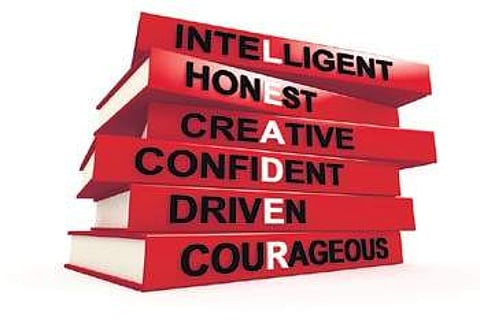

This is a recurrent topic in many political analyses, we ask ourselves why the world has reached an incomprehensible free fall process of the quality of leadership in the world. So many commentators focus on the lack of competence in political leaders, and how the brightest minds don’t want to serve in the public office. This is by and large true, but it misses the real problem and is extremely partial in its approach. There is also a crisis in leadership in the private sector.
It would only be logical to think that in 21st Century, when the world has never been richer and more countries under democratic regimes, that a larger number of people are educated, or that science has ever been more advanced, that we would have the best leaders in our history. We should have the ablest, competent, stable, prudent and wise leaders. Well, we don’t.
There are some exceptions, but that’s not enough. Does this mean that there is a collective crash of intelligence and common sense? Well no, but it does mean that some of the best don’t choose public service anymore, and that business leaders—no matter how brilliant, creative and great managers they can be— lack other essential tools, such as sufficient knowledge of history and geopolitics. Many business leaders are educated in the principles of competence, excellence and merit; others simply ignore those principles. But in too many cases the ignorance of history and geopolitics gravely hinders their ability to manage.
The crisis we are suffering is far from simple. It’s a combination of flawed elites, political and all others, that are followers not leaders, and the representative democracy under severe fire from the extreme and far Right and Left. Democracies can withstand the burden of a flawed political class, but not if combined with fierce attacks from the extremes and even questioned by some mainstream media and thinkers.
The trend is worrying and only getting worse. When we see some of the leaders elected to the executive branch of government in some of the most important countries, one wonders how they are going to react in a serious crisis, how will they preserve peace and stability if, in fact, many of those leaders are actually the source of instability and conflict. Examples include the heads of the states or governments—even local government such as the Mayor of Rome and her intensively criticised management of the Eternal City.
This column is too short to analyse such a deep problem, but it intends to give the reader food for thought. Why is this happening? One of the main questions that comes to my mind is why values and principles, common to all humanity, are not more present in decision-making? Why don’t we all have, and especially leaders, a greater sense of transcendence of depth and of the bigger picture, and above all the greater good?
It is true that we live in times of greater Corporate Social Responsibility, of fair trade and growing solidarity, but that is mainly the civil society putting pressure on the top more than a top bottom inspirational movement. There are some extraordinary exceptions to the rule—Bill Gates, Warren Buffet, Amancio Ortega, and Real Madrid Foundation. In India, examples of responsibility, generosity and solidarity include Bharti Foundation, Munjal Hospital in Ludhiana, Adani Foundation and many others.
Making a better world is not only about generosity and giving back, it is about governing, managing and deciding under a strong set of universal principles, solid education, culture of excellence, merit, capacity and unbreakable work ethics. The world is ruled by immediacy, impatience, egoism and even hedonism.
Not that a certain degree of self-indulgence is bad, the problem is when it overwhelms everything else. It is said that cable news changed politics, that Internet changed our work and leisure, that social media and mix of all the above are changing the world. Progress is essential to humanity, but it should be at the service of humanity and not the other way around. And so should politics and business—no mankind under the boot of either or both.
Gustavo de Aristegui, Former Spanish ambassador to India
gmdea1967@gmail.com